
Cloth Diapers
What It Used to Be Called:
Diapers
What changed:
Disposables soaked up most of the market.
Centuries ago, the word diaper had nothing to do with bottoms. It referred to a fabric with a distinctive geometric pattern. This kind of fabric was used in the garment for babies; that garment came to be known as a diaper.
These days diaper generally means the disposable kind - an invention that first appeared after World War II.
When the language required a new word for the old thing, cloth diaper was born.
An early use:
"Playtex tests confirmed by the Good Housekeeping Institute show that Dryper disposable diapers are more absorbent than ordinary cloth diapers."
Advertisement, Los Angeles Times, July 12 1960
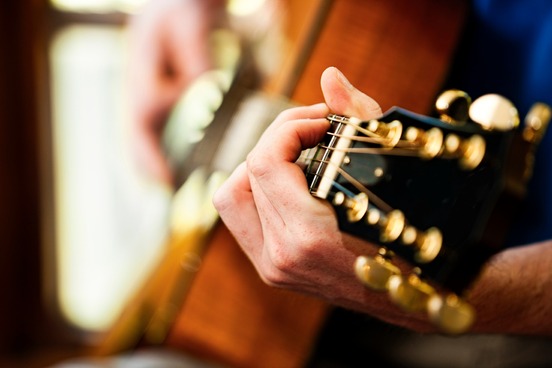
Acoustic Guitar
What It Used to Be Called:
Guitar
What changed:
Music. The electric guitar was developed in the 1920s (when it was first adopted by jazz musicians), and popularized in the late 1940s by the legendary Fender Company.
As a result, its predecessor was dubbed the acoustic guitar.
The two instruments once represented more of a culture clash than they do now. For example, when Bob Dylan famously plugged in his electric guitar at the 1965 Newport Folk Festival, he alarmed some folk music fans and, as Rolling Stone magazine put it, "unveiled his rock & roll heart."
An early use:
"[Garland Jeffrey's] new album, "American Boy and Girl," where he wrote all the songs, sings, and plays some acoustic guitar and percussion, has several songs about these 'urban throwaways.'"
Mary Campbell, Associated Press, Jan. 1960
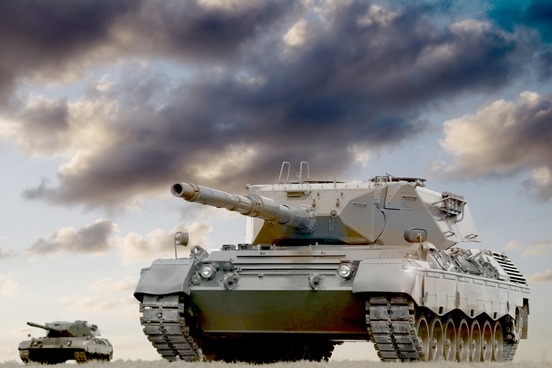
Conventional Warfare
What It Used to Be Called:
Warfare
What changed:
Technology and military strategy.
Conventional warfare pits one military force against another, each armed with traditional guns and explosives.
Unconventional warfare, spawned during the last century, features biological, chemical, or nuclear weapons; it's also applied to counterinsurgency and guerrilla fighting.
An early use:
"The ground forces must make the most revolutionary changes in tactics and thinking to face atomic war... Some top-ranking military leaders fear the changes may be too revolutionary, leaving the ground forces unprepared for conventional warfare."
Life, July 25, 1955
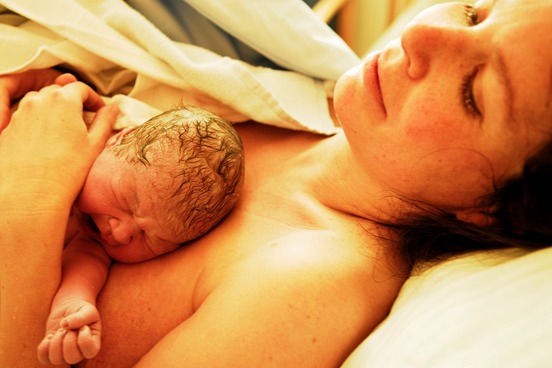
Natural Childbirth
What It Used to Be Called:
Childbirth
What changed:
Medicalized childbirth became an option.
During the second half of the twentieth century, with the growing popularity of cesarean sections, labor inducing drugs, and epidural anesthesia, natural childbirth was conceived to describe labor and delivery without surgery and with minimal or no use of drugs or anesthetics.
An early use:
In a letter to Time magazine on Feb 9, 1953, Francella R. Poston wrote: "Natural childbirth is no craze. It is the desire of a group of healthy, well-adjusted women to go about having their babies naturally...."
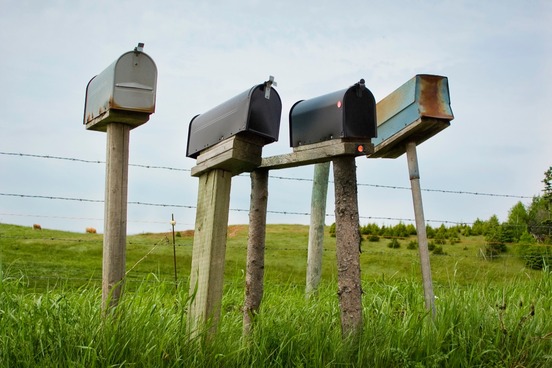
Snail Mail
What It Used to Be Called:
What changed:
Email rushed in, followed by texting, social network messaging, etc.
Snail mail is not only slower, but also much rarer. In the United States, for example, about 175 billion letters are sent each year, compared with many trillions of e-mails (and a heaping portion of spam).
An early use:
"With the proliferation of personal computers, electronic mail is becoming more viable. As does 'snail mail,' information utilities offer users a unique address."
Infoworld, Mar. 29, 1983

Hardcover Book
What It Used to Be Called:
Book
What changed:
Paperbacks found their way into pockets everywhere.
The Great Depression created a market for inexpensive literature, and the first major paperback publisher, Penguin, stepped in to serve it. (Its early bestsellers included titles by Agatha Christie and Ernest Hemingway.)
With the rise of paperbacks, readers and publishers needed to identify hardcover books as such, and that term appeared in 1949.
An early use:
"The author of a big smash will probably make somewhere between $40,000 and $100,000 on the hardcover item that begins the great chain of success."
Life, July 31, 1964
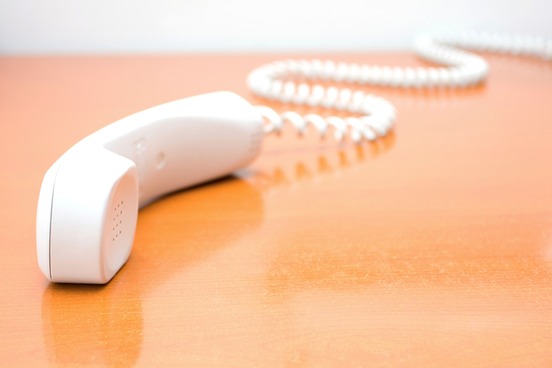
Landline
What It Used to Be Called:
Telephone
What changed:
Cell phones became indispensable.
The term itself goes back a long way. The original landline referred to a wire carrying telegraph signals over land rather than under water. Alexander Graham Bell's telephone system used land line for a wire carrying voice signals.
However, the word wasn't used much until cell phones entered the conversation. At that point, landline came to describe the immobile, newly old-fashioned telephone.
An Early Use (of the Modern Sense):
"When, if ever, will the migration from landlines to mobile stop, and when will landline networks cease to be economically viable?"
McKinsey Quarterly, Jan. 2000
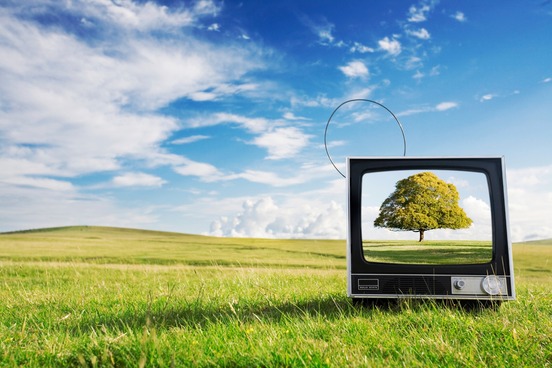
Broadcast TV
What It Used to Be Called:
TV
What changed:
Starting in the 1970s, new TV channels started pouring into American homes via new technologies.
Broadcast TV - i.e. the old-fashioned kind, transmitted over the airwaves - became distinct from the cable and satellite options.
An early use:
"The kind of television most of us watch is broadcast TV. Television stations beam signals over the air, and anyone in the area with a TV set can pick up the signals."
Kiplinger's Personal Finance, Sept. 1979
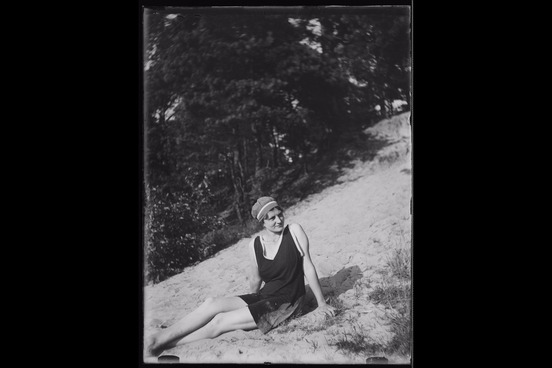
Silent Movie
What It Used to Be Called:
Movie
What changed:
Title cards quietly disappeared.
In the 1920s, the new kind of movies with built-in soundtracks were called talkies.
Once it became obvious that sound was here to stay, talkie was supplanted by movie, and silent movie designated the old-fashioned style.
An early use:
"Nobody can prophesy with any accuracy as to the effect the spoken movie will have upon the silent movie."
John Gallishaw, Twenty Problems of the Fiction Writer, 1929

Hard Copy
What It Used to Be Called:
Copy, Text, Paper
What changed:
What you're doing right now - reading on a screen - became a standard way to get information.
These days, hard copy refers to paper versions of textual or graphic information. But when the term first appeared, the alternative wasn't digital: hard copy originally referred to printouts of microfilm.
An early use:
"To produce the best quality hard copy from a single frame of microfilm ... select a particular exposure by adjusting the time and the light source intensity."
"Proceedings of the Annual Meeting and Convention," National Microfilm Association, 1963
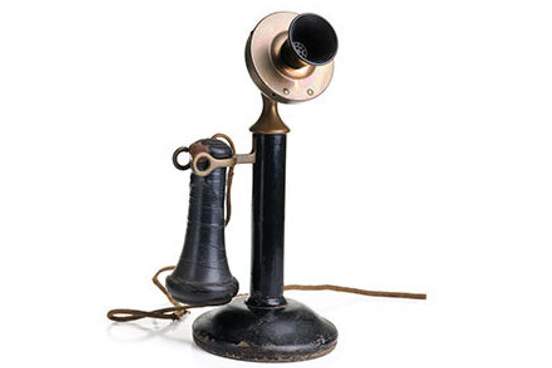
Dumbphone
What It Used to Be Called:
Cell Phone, Phone
What Changed:
The smartphone was developed. The earliest cell phone was used to make longer distance calls than a landline, and most early cell phones didn’t have much in the way of internet or other advanced features. While the first known use of smartphone is from 1996, when the earliest smartphone similar to the ones we know today was developed, it wasn't until the early 2000s that the smartphone really took off. To distinguish the newer, smarter cell phones from the simpler ones of the past, we started calling them dumbphones. Today the word dumbphone is used to describe a cell phone that does not include advanced software features (such as email or an internet browser) typically found on smartphones.
An early use:
"But with all the attention being paid to Steve Jobs' creation and the rise of the so-called 'smartphone,' perhaps the marketplace is ignoring the potential viability of what I'll call a dumbphone, and I mean that in the nicest possible way."
Andrew Wallenstein, The Hollywood Reporter, August 15, 2007

Meatspace
What It Used to Be Called:
Life/The World
What Changed:
More and more things were happening in cyberspace. Meatspace began to be used in the early- to mid-1990s to describe the physical world and environment especially as contrasted with the online world of computer networks and especially the internet.
An early use:
"Seven years after he gave up cattle ranching … he now helps others to understand the encroaching "virtualisation" of society. He is a frequent contributor to debates in both the real and on-line communities, in cyberspace and "meatspace", as he so charmingly refers to the corporeal world."
Jon Casimir, Sydney Morning Herald (Australia), July 29, 1995
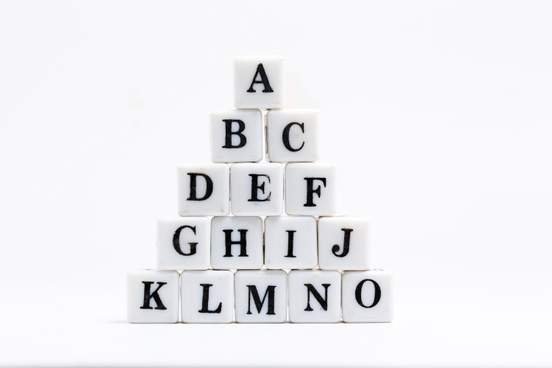
Natural Language
What It Used to Be Called:
Language
What Changed:
Artificial languages were developed. Natural language, also called human language, is all of the many languages that evolved naturally over time. This is contrasted with programming languages and constructed languages, or conlangs, like Esperanto or Klingon. Natural language also sometimes refers to the normal and natural way people speak and write.
An early use:
"This set of equipment supplied to Chase Manhattan Bank NA by Interstate Electronics Corp., a subsidiary of A-T-O Inc., allows for humans to talk directly into a computer in natural language rather than use a keyboard terminal or other intermediate step to translate natural language into machine language."
The American Banker, June 18, 1980






